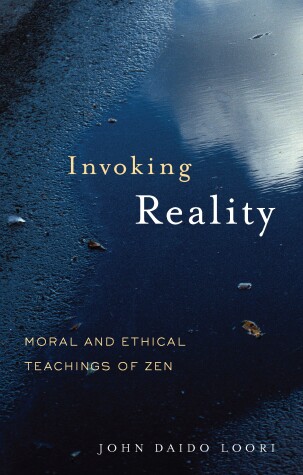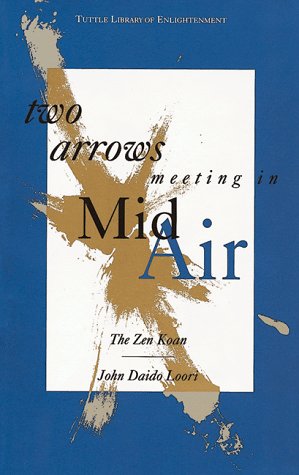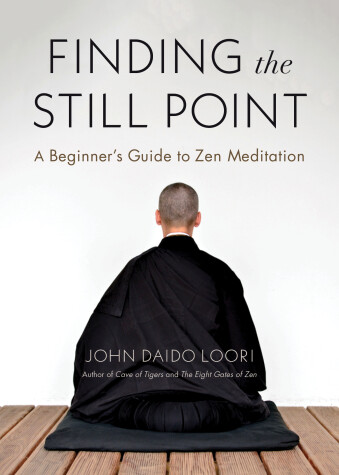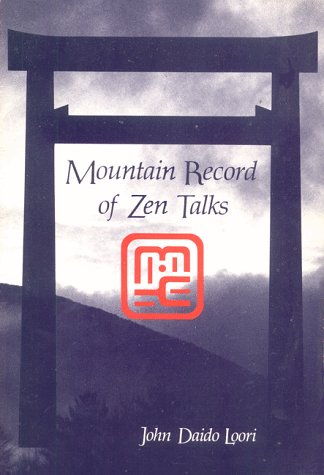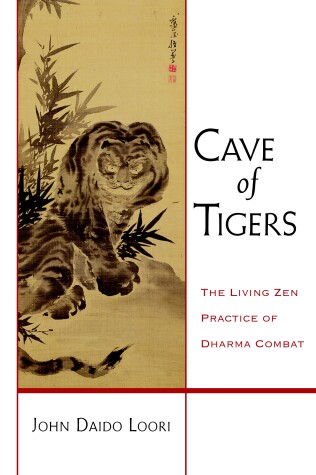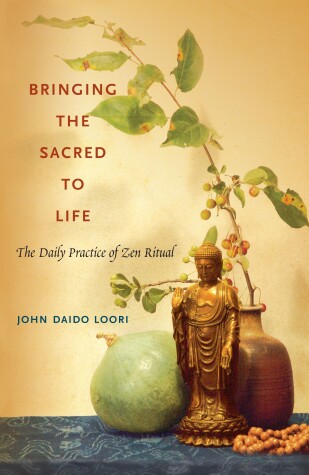Dharma Communications
7 total works
There is a common misconception that to practice Zen is to practice meditation and nothing else. In truth, traditionally, the practice of meditation goes hand-in-hand with moral conduct. In Invoking Reality, John Daido Loori, one of the leading Zen teachers in America today, presents and explains the ethical precepts of Zen as essential aspects of Zen training and development.
The Buddhist teachings on morality—the precepts—predate Zen, going all the way back to the Buddha himself. They describe, in essence, how a buddha, or awakened person, lives his or her life in the world.
Loori provides a modern interpretation of the precepts and discusses the ethical significance of these vows as guidelines for living. “Zen is a practice that takes place within the world,” he says, “based on moral and ethical teachings that have been handed down from generation to generation.” In his view, the Buddhist precepts form one of the most vital areas of spiritual practice.
The Buddhist teachings on morality—the precepts—predate Zen, going all the way back to the Buddha himself. They describe, in essence, how a buddha, or awakened person, lives his or her life in the world.
Loori provides a modern interpretation of the precepts and discusses the ethical significance of these vows as guidelines for living. “Zen is a practice that takes place within the world,” he says, “based on moral and ethical teachings that have been handed down from generation to generation.” In his view, the Buddhist precepts form one of the most vital areas of spiritual practice.
One of the simplest, easiest-to-understand guides to Zen meditation--with audio exercises to serve as meditation companions.
Through Zen meditation it is possible to find stillness of mind even amidst our everyday activities--and this book reveals how. With easy-to-understand instructions, practical lessons, and short-but-sweet tid-bits of useful information, beloved Zen master John Daido Loori shares the way of Zen meditation in terms that even those starting from the very beginning can understand. Guided audio instructions--available for download online--supplement the teachings throughout the book, giving beginners the tools they need to take that first step into Zen practice and meditation.
Through Zen meditation it is possible to find stillness of mind even amidst our everyday activities--and this book reveals how. With easy-to-understand instructions, practical lessons, and short-but-sweet tid-bits of useful information, beloved Zen master John Daido Loori shares the way of Zen meditation in terms that even those starting from the very beginning can understand. Guided audio instructions--available for download online--supplement the teachings throughout the book, giving beginners the tools they need to take that first step into Zen practice and meditation.
In this treasury of Zen wisdom based on his talks, the abbot of Zen Mountain Monastery in Mt. Tremper, New York, explores the eight areas of study that are the focus for training in his community: meditation, study with the teacher, liturgy, art practice, body practice, the study of scriptures, work practice, and the moral and ethical teachings. John Daido Loori also covers such topics as koans, the martial arts, and illness and healing, and he makes intriguing observations about the spirit and requirements of Zen in America.
Dharma combat is a practice form unique to Zen in which student and teacher confront each other before a live audience, so to speak. The Zen master takes a seat at the front of the meditation hall and is approached by students, one by one, who challenge the master with questions. The Zen master challenges them in return, and the pithy, energetic exchanges become a teaching for all involved.
Cave of Tigers is proof that the ancient practice of dharma combat is alive and well in American Zen. It consists of records of actual dharma combat sessions between John Daido Loori Roshi and his students at Zen Mountain Monastery. The highly charged encounters range from koan-like exchanges to practical discussions of meditation, Buddhist philosophy, and the always-pertinent issue of bringing spiritual practice into everyday life.
Cave of Tigers is proof that the ancient practice of dharma combat is alive and well in American Zen. It consists of records of actual dharma combat sessions between John Daido Loori Roshi and his students at Zen Mountain Monastery. The highly charged encounters range from koan-like exchanges to practical discussions of meditation, Buddhist philosophy, and the always-pertinent issue of bringing spiritual practice into everyday life.
Zen rituals—such as chanting, bowing, lighting incense before the Buddha statue—are ways of recognizing the sacredness in all of life. A ritual is simply a deliberate and focused moment that symbolizes the care with which we should be approaching all of life, and practicing the Zen liturgy is a way of cultivating this quality of attention in order to bring it to everything we do. Here, John Daido Loori demystifies the details of the Zen rituals and highlights their deeper meaning and purpose. We humans are all creatures of ritual, he teaches, whether we recognize it or not. Even if we don’t make ritual part of some religious observance, we still fall into ritual behavior, whether it be our daily grooming sequence or the way we have our morning coffee and paper. We run through our personal rituals unconsciously most of the time, but there is great value to introducing meaningful symbolic rituals into our lives and to performing them deliberately and mindfully—because the way we do ritual affects the way we live the rest of our lives. The book includes instructions for a simple Zen home liturgy, as it is practiced by students of the Mountains and Rivers Order of Zen.
